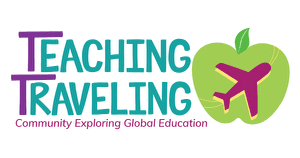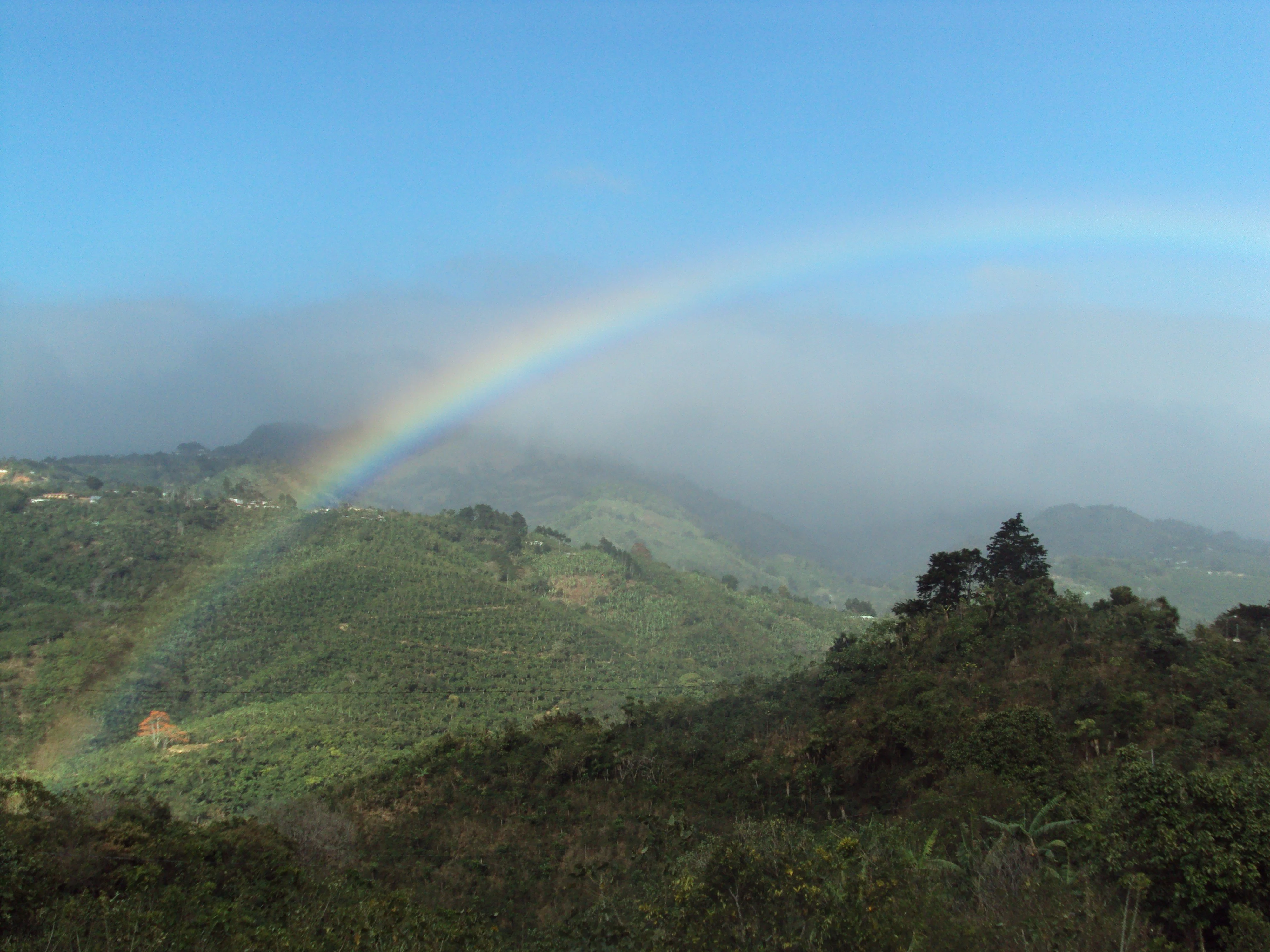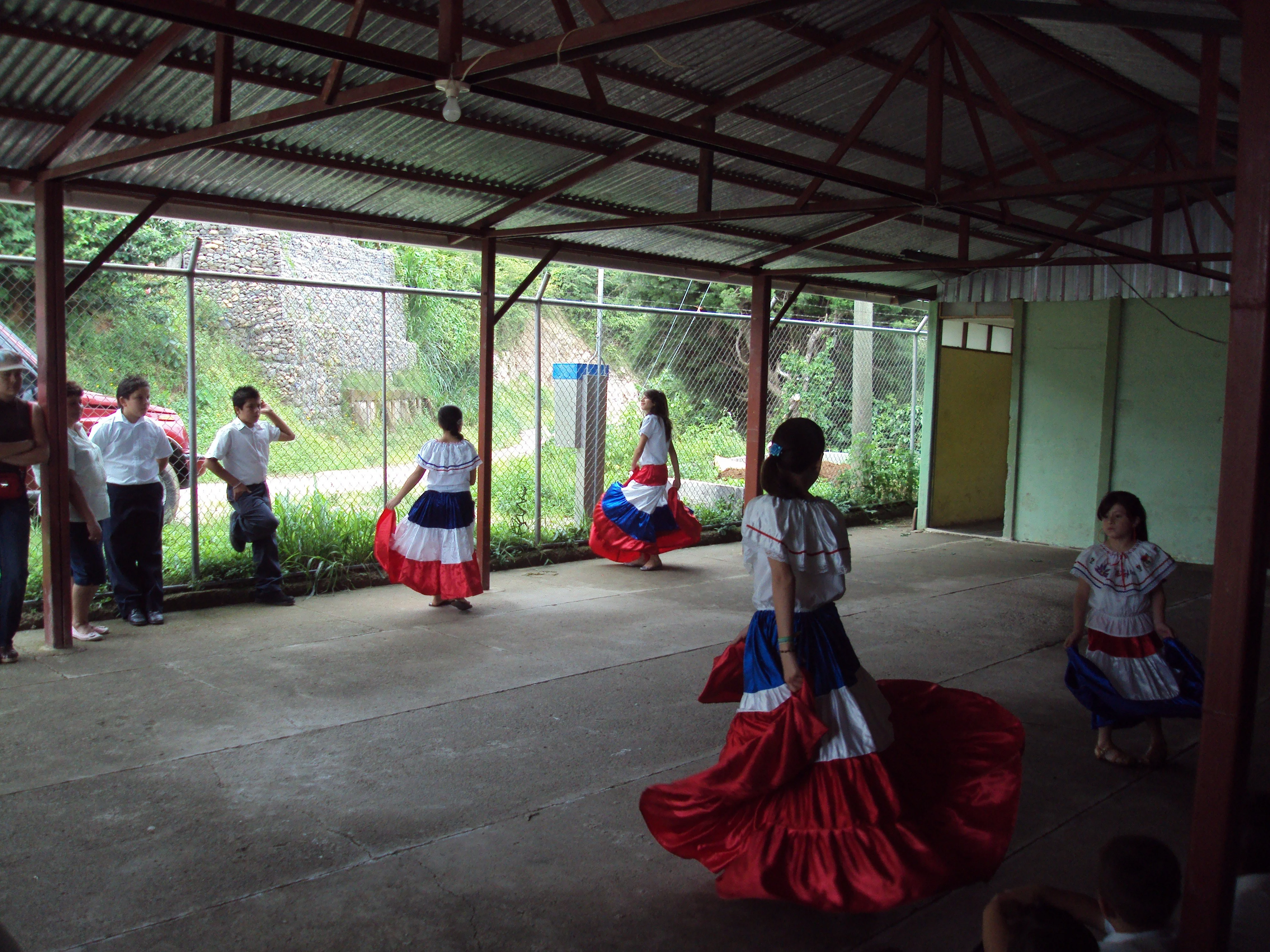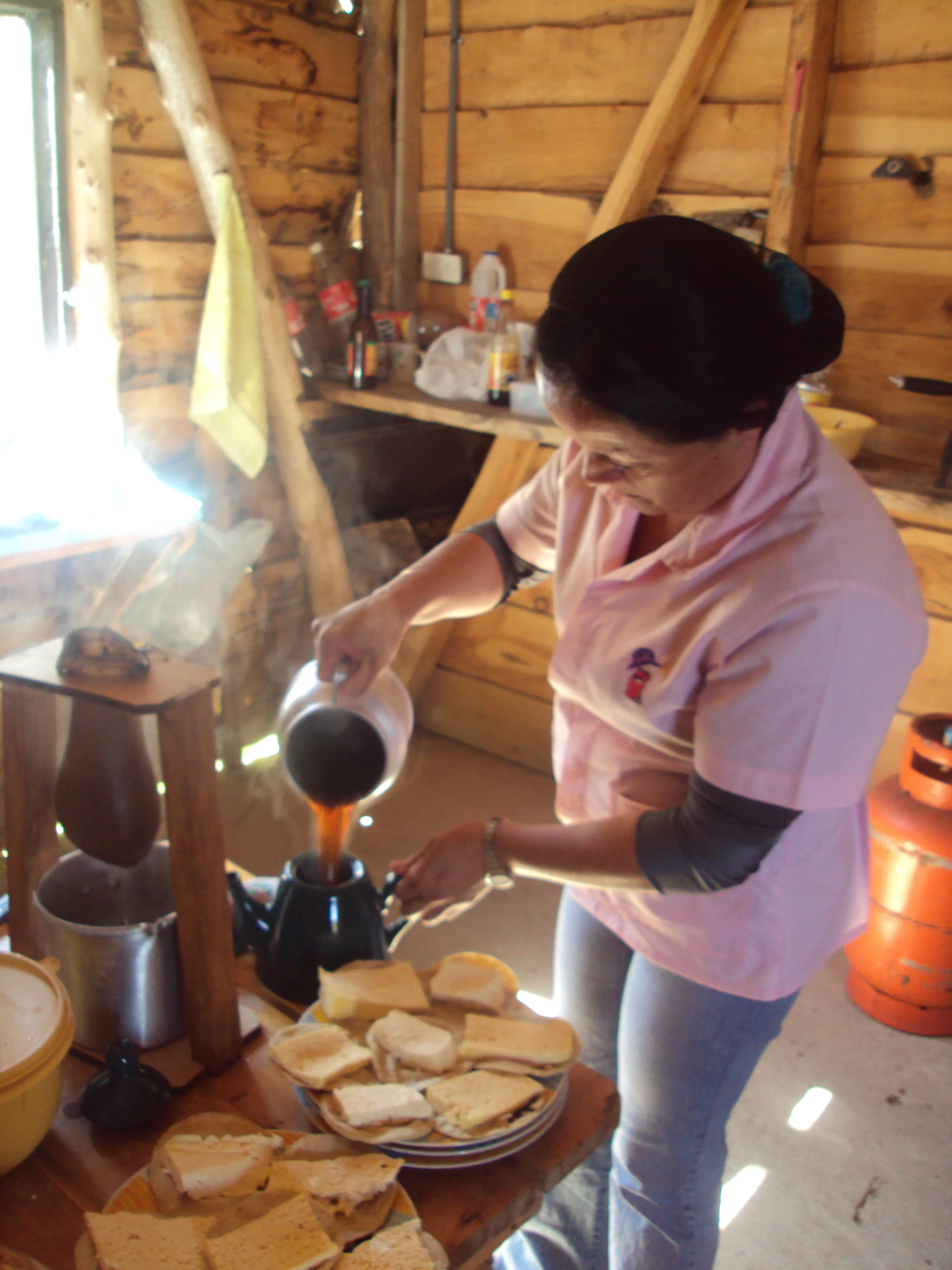Teaching Traveling: Welcome, Erin!
We are eager to hear of your experiences teaching and traveling in Costa Rica with WorldTeach. First, tell us a bit about your background.
Erin: I grew up in Rhode Island and then lived in Boston while I went to Northeastern. I stayed in Boston for a few years after graduating in 2006 while I worked at several afterschool programs and the B-SAFE summer program in Dorchester.
I knew I wanted to travel after college and started applying for the Peace Corps, but through these jobs I also found out that I LOVE to teach. I hadn’t traveled much outside of a high school trip to France and one to Quebec City, Canada but something in me knew that I needed this experience. And after teaching a bit in Boston I realized traveling would be a great way to get a cross-cultural perspective.
I was looking for a volunteer program that would allow me to gain personal and professional experience in another country… and now I’m living and working in Costa Rica!
TT: Wonderful! What are you doing in Costa Rica? How long have you been there?
E: I teach elementary school English as a Foreign Language at a small school in a rural coffee-farming town in the beautiful green mountains of Costa Rica. Sometimes I have to pinch myself just to make sure what I just said it real.
I’m a volunteer teacher with a program called WorldTeach, based in Boston, MA, that is partnered with the Ministry of Public Education here in Costa Rica. Typically it’s a one-year program, but I loved it so much I decided to extend and stay a second year. As a volunteer teacher I receive a stipend from the MEP and they pay my host family for room and board.
TT: Love it! How did you find this travel opportunity?
E: I spent over a year applying to the Peace Corps. They ended up rejecting me for medical reasons and I that’s when I found WorldTeach. I knew I wanted to live and work in another country and I was determined to make it happen.
Despite my disappointment at being rejected by the Peace Corps, WorldTeach ended up being a far better opportunity in terms of timing, support and the type of job. They have different programs (year long, summer and semester) in countries all over the world, and each country’s program is slightly different depending on the instructional needs there.
For example some countries need math and science teachers, some work with high schools, and others provide adult education. I specifically chose Costa Rica because it was the only Latin American program that guaranteed an elementary placement.
TT: What are the greatest challenges and rewards of being a volunteer teacher in a foreign country?
E: It’s hard to sum up my experience because overall it’s been amazing, but not without it’s challenges. For example, I hardly knew any Spanish when I first got here, so one of the rewards was learning a second language.
However, learning Spanish through immersion, having to conduct your entire life in a second language that you barely know, is extremely frustrating. I have a whole new appreciation for ESL students and families.
But even once I learned more Spanish, some of the cultural differences and misunderstanding were challenging. There’s a different sense of discipline and in rural areas: a different importance placed on education. But the greatest reward has been the relationships and connections I’ve formed. That and eating hot homemade tortillas with fresh cheese.
Living with a host family in the same community where I work makes it more than just a job, it’s my life. I’ve celebrated birthdays, funerals, weddings and holidays with my students and their families. I can’t go anywhere without someone shouting out “Teacher!”
The lack of privacy in a small town can bother some people but I’ve embraced it and I think it strengthens my classroom instruction to have relationships with my students outside the classroom, something that can be much more difficult in urban education in the US.
TT: So well-put! What’s been your funniest miscommunication?
E: During my first month here had some underwear hanging in my room to dry. We were warned not to let our host families wash our delicates since they usually hang them outside, sometimes on a bush or fence in front of the house for all to see.
I returned from classes to find my underwear crawling with tiny little bugs that didn’t resemble anything I’d ever seen before. I freaked out, worried that I had some weird disease or I don’t know what! So I went to my host mom, who was sitting with a visitor, and tried to discretely ask her what they were.
She chuckled a bit and told me that they were “amigas” or friends. I was confounded as to why she would insist that the creepy crawlies in my undies were my friends and I insisted that they were not my friends. Keep in mind I’d only been here for a month so who knows how much of my meaning got through in my muddled Spanish. Long story short, I later found out that the word for ant is “hormigas.” So in fact, I had ants in my pants.
TT: Hah!!!! What else have you done with your time in Costa Rica?
E: I’ve formed a group with the 5th and 6th grade girls after school to discuss things like goals, self-esteem, and teamwork to try to motivate them to continue their studies. I’ve also work with adults studying to pass their high school exams, and others just looking to learn some English.
By far, my favorite community project was our recycling competition. During our unit on the environment, we included a 2 week competition to see which class could bring in the most recyclable trash. Despite spending every spare minute (including Friday evenings) counting thousands of pieces of trash, it was worth it see how involved and interested the students and their families were in the project.
We’re planning on having an event in December to celebrate the winners of the competition, do a community clean up and continue to raise awareness about recycling in the community. My other favorite was doing the animals unit and planning this presentation of “Brown Bear Brown Bear” by Bill Martin for the parents. (See more about brown color here.) I don’t know who enjoyed it more, me, the students, or their parents.
TT: What fantastic work you are doing! How did you find the money to fund this teaching traveling?
E: I mostly funded it through the support of my family and savings. I’m blessed to have some very generous friends and family who made fundraising easy. I highly recommend WorldTeach as well. Although some of their programs are more expensive, there are some fully funded programs and I’ve felt that I’ve gotten my money’s worth in training and support from them. I’d be more than happy to discuss this with anyone who’s considering volunteering through them.
TT: Lovely! How have your travels impacted you as a teacher?
E: Well, since I’m still in Costa Rica we’ll have to wait and see, but I’m sure that having this cross-cultural experience will open up new relationships and new understandings in my job as a teacher. I’m excited to see where this takes me!
It’s also been interesting to see how the educational system works in another country. There aren’t as many regulations, especially for a volunteer teacher, so I can create my own curriculum, go at my own pace, write my own tests etc. Might be challenging to adjust to standardized test driven atmosphere of US schools when I come back.
Also I think living where I teach and being involved in the lives of my students and their families outside school has given me a great appreciation for the importance of community and family relations in and around the school.
I always felt these were important but my first hand experience living in this small community makes me realize how vital this is to the learning process inside the classroom. I’m hoping to be able to bring the seeds of this experience back to plant in my next teaching community.
TT: How have your travels impacted you as a person?
E: Not sure I can even begin to explain this or even understand this myself until I return “home” permanently. I can certainly say that my concept of home and family has altered and expanded! After living in another country for 2 years, I think my own culture will seem quite strange to me and there will be a period of continued transformation and transition when I come home.
I know I’ve certainly gotten much more “tranquila” about a lot of things (bugs, bug bites, punctuality, and cold showers to name a few). I’m much more confident in my abilities but also much more humble as a result of repeatedly embarrassing myself in Spanish.
I have a new perspective, a new appreciation for family. I’m looking forward to reconnecting with my family and friends in December but I can honestly say that leaving my community and my new family here in Costa Rica is going to be hard.
TT: What advice do you have for other educators who are dreaming of travel, or travelers who want to teach?
E: Do it! Teaching is as much about learning as it is about teaching, and you can learn so much through travel. If you want to do it badly enough, the right opportunity will come along at the right time, but you’ve got to pursue it. Don’t wait for some future time when you’re not busy, when you have enough money etc. We all know that day may never come.
A teacher who travels can expand the worlds, the minds, the opportunities of his/her students at home and a traveler who teaches does the same for their foreign students. All of this enriches our communities, both local and global. There has never been a time before when it has been so important to reach out across cultures, explore and connect with people in other parts of the world.
If you want to fix a computer, you have to learn something about computers and how they work. Same thing with our world. If you want to make the world a better place, you have to get to know the people and places that make up that world, including yourself.
TT: Erin, thank you so much for your wonderful words and story! Keep up your excellent work! Readers, what comments or questions do you have for Erin?

The author, Lillie Marshall, is a 6-foot-tall National Board Certified Teacher of English from Boston who has been a public school educator since 2003. She launched TeachingTraveling.com in 2010 to share expert global education resources, and over 1.6 million readers have visited over the past decade. Lillie also runs AroundTheWorld L.com Travel and Life Blog, and DrawingsOf.com for educational art. Do stay in touch via subscribing to her monthly newsletter, and following @WorldLillie on social media!








Robert F. Mix
Friday 1st of February 2013
Erin dear-- I've just read your blog and enjoyed it thoroughly! You're observant and highly articulate and your sweetness and honesty shine through like the sun. it was a pleasure to translate your volunteers' certifications. Do keep me in your address book and stay in touch; I'm proud of you. Affectionately, Bob
Judy, teacher in Connecticut
Friday 13th of July 2012
I was in Costa Rico last year and read your post with interest. I can only begin to imagine your experiences. I visited some schools, and noticed quite a variety from one-room school houses with mud floors (but with two computers no less) to more modern-looking buildings. I was primarily vacationing, so did not have the same kind of firsthand experience you are having, but did once do something similar in Greece, living with a family in a small village. The family did not speak English, and I did not speak Greek, but we managed to get along fine. One thing that struck me about Costa Rico was the disbandment of a military, which left funding for eco-tourism, the environment, and education. Continue to enjoy your experiences. If you have a blog or website were you upload pictures, let me know.
Mark
Sunday 27th of May 2012
What a great opportunity for teachers. I am sure it is the experience of a lifetime. Thanks for sharing!
Jun Hao Lei
Wednesday 25th of January 2012
Wow, this school must be really old and religious due to how they dress and how their school looks like.
Kate
Saturday 31st of December 2011
Hi Erin!
I just stumbled upon this website and really enjoyed reading about your experiences! I have spent a month, each summer, for the last two years volunteering in schools in Guatemala. I also had the opportunity to travel to Costa Rica this last summer. It was amazing! I live and work in a school in the Boston area, so if you find yourself back in the city, it would be great to connect and share experiences! Also, I go to a meetup once a month for conversational Spanish--- its awesome (y gratis)! It helps to keep practicing!
Take care, Kate Baldwin